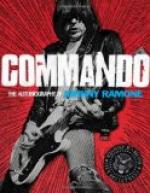It was sad to see how few horses there were at the foot of the mountain. Here a group of four, there of ten—a sign that the number of burghers in the positions was very small indeed. When the enemy appeared at Quaggaspoort, we noticed that the burghers from the direction of Krokodil River were retreating, and a moment later they were all in full flight. One of my comrades, a brother of Lottering, was wounded in the arm by a shell as he fled, and had to remain behind in Pretoria. That night my brother and I spent in our own home, but we left the town the following morning in the direction of Silverton, just before the enemy entered.
It would be well to try and understand the condition of our country and the temper of our burghers.
As the capital was in the hands of the enemy, it was easy enough to convince our simple-minded men that our country was irretrievably lost to us. Therefore a period of discouragement and demoralization followed. Many burghers, also, who had all along fought bravely now remained behind in the towns or on their farms, not daring to leave their wives and daughters at the mercy of the soldiers. We may not judge those men, neither need we consider it to our credit that we, either from a sense of duty or from a spirit of adventure, acted differently. There were many also who argued that the Government was corrupt, and that the war should have been prevented, or that the Boers did not want to fight. So they also became unfaithful to the cause, and to those along with whom they began the war. And the name of ‘hands-upper’ was earned by those burghers who of their own free will surrendered to the enemy. The chaff was divided from the grain; cowards and traitors remained behind, and the willing ones went to the veld, even though it were in a retreating direction. We were still very hopeful. There were still the good positions in the Lydenberg district, and we had heard that De Wet had cut the line of communication behind the enemy. We also still had an intact line to Delagoa Bay.
My brother and I met our old comrade Frans Loitering, and the three of us went in search of General Grobler of Waterberg, who lay with his commando to the east of Pretoria at Franspoort, near Donkerhoek. There we joined his commando. Our camp was put up near a Kaffir location, and as the Kaffirs were clean, we often bought boiled sweet potatoes and crushed maize from them.
Nothing particular happened at Franspoort. To the right and left of us some desperate fighting went on for several days, and at Donkerhoek a fierce battle took place, but we were not attacked.
When the news came that the enemy had broken through our lines at Donkerhoek, and that we had to retreat, my brother and I left Grobler’s commando. Thinking that the commandos would fall back upon the positions of Belfast, we went to Middelburg to an uncle of ours, the missionary Jan Mare, in order to give our horses a rest. We had lost sight of our comrade Frans. On our way we bought bread at the farms, or had it given us, cut a piece off an ox that had been slaughtered for the commando, and slept either in a manger or, as was more often the case, in the open air of the cold Hoogeveld. We arrived at Middelburg completely exhausted, and are not likely to forget our uncle’s great hospitality.




